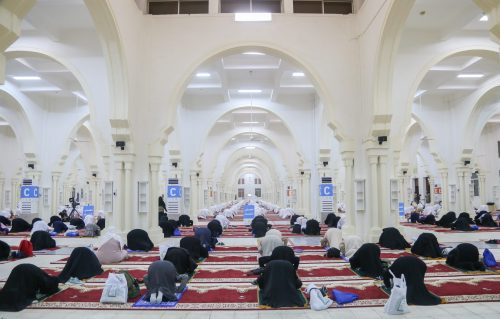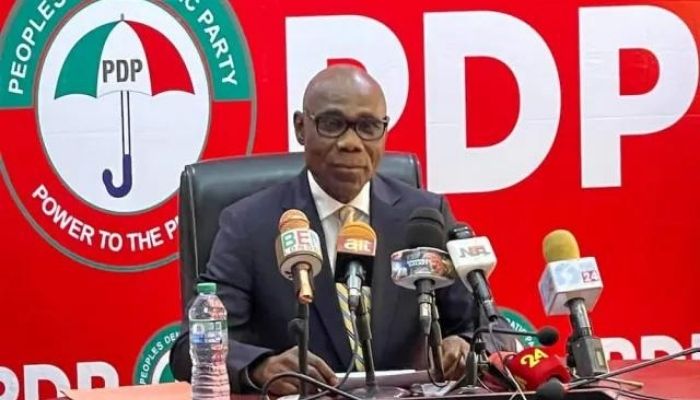 We must thank Mallam Ujudud Sharrif for taking the shame off our head by writing on the third anniversary of Abubakar Rimi, (see Daily Trust, April 3rd, 2013). There is something compelling that sort of memorial for a man who fired popular imagination so powerfully at a point in recent Nigerian History. At a time of national political malaria such as we are in, memorials for such a player have cathartic contributions or value. The national malaria, as everyone can see, is so severe that neither Sule Lamido, Rimi’s obvious successor nor any of the numerous political appointees of Rimi across Nigeria could organise anything much in remembrance of the theorist and practitioner of “changi dole”. (This is though not calling on anyone to pity Lamido. He is at home with making trouble and his current troubles can’t be new to him).
We must thank Mallam Ujudud Sharrif for taking the shame off our head by writing on the third anniversary of Abubakar Rimi, (see Daily Trust, April 3rd, 2013). There is something compelling that sort of memorial for a man who fired popular imagination so powerfully at a point in recent Nigerian History. At a time of national political malaria such as we are in, memorials for such a player have cathartic contributions or value. The national malaria, as everyone can see, is so severe that neither Sule Lamido, Rimi’s obvious successor nor any of the numerous political appointees of Rimi across Nigeria could organise anything much in remembrance of the theorist and practitioner of “changi dole”. (This is though not calling on anyone to pity Lamido. He is at home with making trouble and his current troubles can’t be new to him).
The elusive thing which compels constant remembrance of past political leaders like Rimi is what they ended up representing in spite of everything. In this wise, it is not that they didn’t have their individual failings or short comings but that all said and done, they sent a message to society.
It is true that except very few ones among them, almost all the governors in the 1979-83 class, individually and collectively, sent a message to Nigeria. They were not as mediocre greedy and selfish as today’s men, whether you are talking of Ambrose Alli or Bisi Onabanjo or Mohammed Goni or Aper Aku or Clement Isong or Melford Okilo. This is not to talk of the more politically assertive ones like Lateef Jakande, Bola Ige, Solomon Lar and, of course, Rimi and Balarabe Musa.
Through a combination of factors and forces, Abubakar Rimi was able to seize the national space among his fellow travelers in the progressive alliance. He was the movement’s natural spokesman even if there was a publicity secretary. His Kano petit-bourgeois self-confidence gave him an edge. So did his physical attributes. As a governor, it was something else. I do not say this in terms of classrooms painted or boreholes sunk but in the serious arena of the most qualitative policy frameworks on crucial issues such as agriculture, land access, taxation, international, award winning mass/adult education programmes, establishment of so many record public institutions.
Aside from his cabinet having someone from every corner of Nigeria imaginable, he was providing a platform for Left argumentation and serious engagement with crucial issues of democracy, federalism, national ideology, etc in the Government House, Kano seminar series. He was the governor as an ideologue, crusader/mobilizer, supervisor of redistributive justice and nationalist, attending Jim Nwobodo’s wedding decked in suit, a barrier breaking symbolic message. That was beside his lecture at the Obafemi Awolowo University, Ile-Ife where he announced the death of North-South ditchotomy. Intellectuals and ideologues of the Kano Government House seminars were spreading out across Nigeria and winning elections dramatically outside the Kano hub of radical populist politics.
So, a truly national movement that did not revolve around Rimi totally but in which he was a very powerful moving force was building up. It was bound to alarm masterminds of the unwritten succession pacts of the two most dominant centres of power that mattered most in Nigeria. When the weak democratic order in Nigeria was subsequently disrupted in December 1983, the movement was halted and it was not until May 2007 that Sule Lamido emerged governor of Jigawa State that Nigeria could hear about pro-Talakawa or peasant-centric policies again. This can not have been a coincidence because, at the end of it all, Rimi, like most politicians who went to detention, was severely damaged by the experience of imprisonment as far as the momentum he had been very much part of in 1979-83 or the prospect of an ideologically informed and experientially tested leftist leaning Nigerian leader was concerned. Of course, he never made it.
And now, the times have changed considerably to the point that the rump of those who trace their political blood to any serious tradition of politics in Nigerian History are barely surviving in whichever party they may be today, including the PDP founded by left leaning politicians. New ways of acquiring, consolidating and utilizing power has taken over politics in Nigeria. Everyone in Nigeria is confronted with the Okonkwo choice in Achebe’s Things Fall Apart. That choice is whether to go with the new men of power and their religion and styles or reject the unfolding new order and risk political suicide.
This is where the memory of an Abubakar Rimi is a cure in the sense of a reference point in political praxis, notwithstanding his warts and all. It is interesting that since 1983, there has been no governor, appointed or elected or selected that came close to the Rimi-Balarabe canvass of government. I stand to be challenged on this, to be shown a governor since 1983 who can beat their record, the two taken as a collective.
I know I will be carpeted for crediting Rimi with so much leftist credential. But we are talking comparatively and all judgments stand on comparisons. I am not ignorant that Rimi was seen as having confiscated the revolution by his handling of his break with Mallam Aminu Kano, by his reductionist statement, for example, that three-quarters of the members of his cabinet were graduates and similar tactical blunders. But it requires a deeper understanding of the environment he was operating to analyse some of these ‘blunders’. There is very little anyone can do about breaks and splits in populist politics because of its very nature. The fact that, in life and in death, he remained the biggest crowd puller in Kano (in life when Zik came to Kano as NPP leader before the death of the 2nd Republic and in death during Rimi’s own burial in Kano), annuls some of these criticisms even as those from the tendency who are still alive can learn one or two things from all of that.
I have a personal reason to celebrate Rimi because I became a beneficiary of the tradition of running government which he inaugurated in 1979. That is another way of saying that even in the changed contexts and environment of power in Nigeria, Lamido’s leadership was a continuation of NEPU-PRP way of doing things. My piece here is, therefore, not a personal but tendency tribute. But the lasting tribute to Rimi would be for those who are still alive out of the nine original dreamers whose ruminations on the Nigerian condition around 1997/8 gave birth to the Institute of Civil Society and eventually the present PDP to come together again, re-strategize and bid for the soul of the PDP. They stand a chance of giving an ideological edge to politics in Nigeria again as against the current politics of ignorance and personal agenda. This too, can be suicidal in the run up to 2015 which is just making people mad for nothing.
… Chukwuka Okonjo and Rufai Alkali: Shall we clap for GEJ?
This column is sensitive enough to university affairs to continue to take note of cases of oases of brilliance in university affairs in Nigeria. We started this with the very apt appointment of Professor Jerry Gana as Chairman of Council of the University of Lagos. In the column thereto, I basically said that if Jerry Gana did not do magic at UNILAG, then we might as well give up. Why? It is simply because he has the political/ideological, bureaucratic and cross-cutting experience to make things happen.
Last week, the Federal Government announced new boards for many more universities. It was nothing to write home about in the sense that Nigeria has better assignments for most of the names there. They are all very successful men and women. There is no doubt about that but most of then will not inspire any university community anywhere and certainly not these virtually dead universities we have around here.
But even then, there were two stars on that list or that I know no one can ignore their appointment. The first is Professor Chukwuka Okonjo while the second is Professor Rufai Alkali.
In one sentence, these men have everything for the job. They may not have the Jerry Gana diversity of experience in terms of academia-government-party leadership-technocracy, etc, they nevertheless each have more than adequate professional and activist background to add value within a very short time. If he is not constrained by age and the traditional ruler’s schedule of duties, Professor Okonjo might find in this opportunity the arena for practicalizing his existing boxes of idea on reviving university education, beginning with where he is now chairman of council.
As a former PDP leader, Rufai will have the advantage of access to power and getting things done. Both have been university men, through and through.
Shall we clap for GEJ for this sort of very rare outings so that he would perhaps do more?



